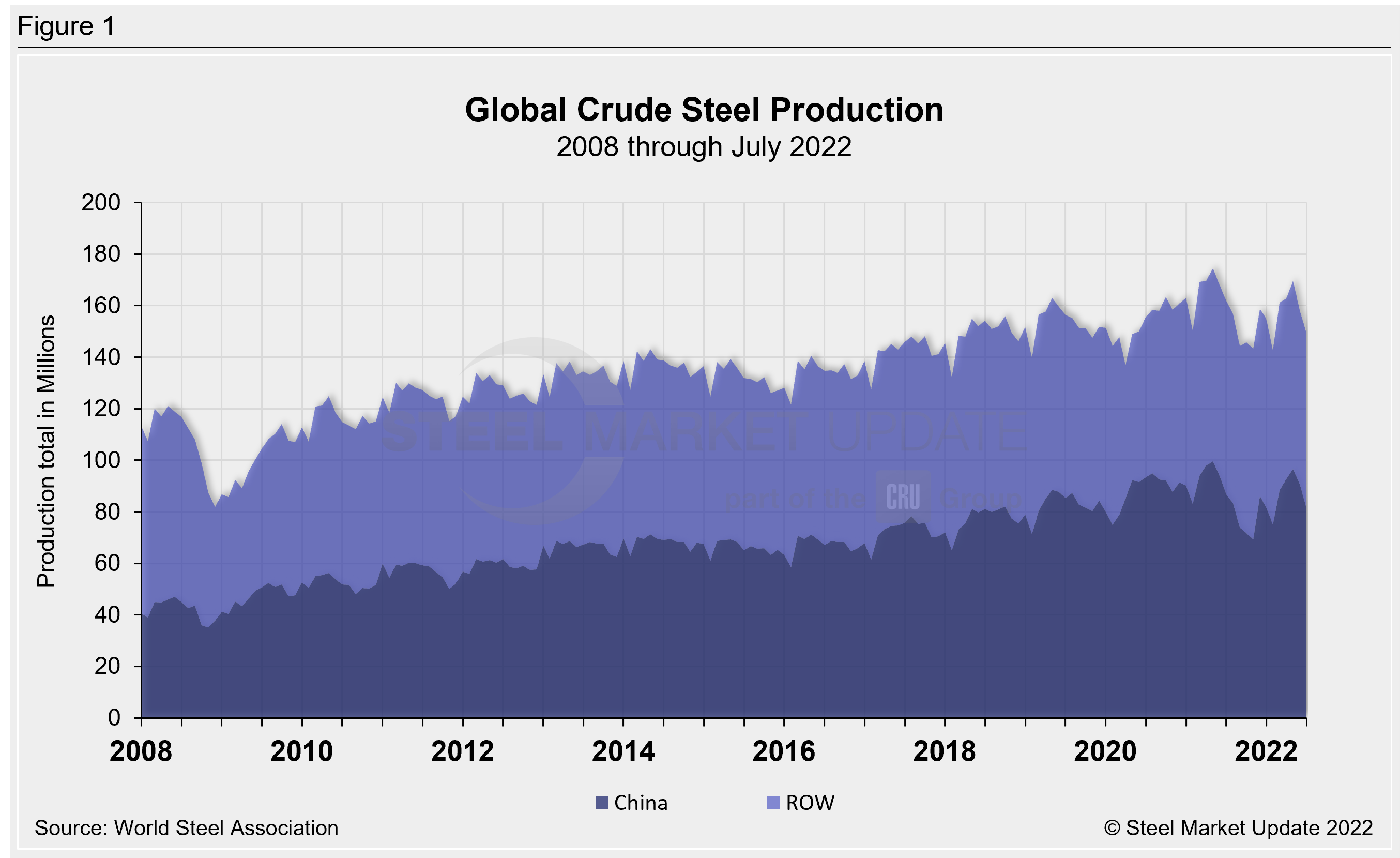Market Data

August 25, 2022
Worldsteel: July Global Steel Production Down, Led by China
Written by David Schollaert
Global crude steel production was estimated at 149.3 million metric tons in July as steelmakers around the world cut back on output by 9.7 million metric tons, or 6.5%, from the same period last year, the World Steel Association (worldsteel) reported.
Last month’s estimated production was also down sequentially, shrinking by 5.6%, or 8.8 million metric tons, versus June’s total crude steel output.
Ever since reaching an all-time high of 174.4 million metric tons in May 2021, global steel output has been inconsistent. It steadily waned for 11 straight months through February, driven in large part by Chinese cutbacks. Production then rose from March through May, led again by China, pushing global output to its second-highest total in May.
Since then, output worldwide has shrunk consecutively, though it’s been more of a global effort. Seven of the top 10 global steel-producing nations saw production output shrink. When compared to the pre-pandemic period of July 2019, global crude steel production was down 4.5%, or 7.1 million metric tons, last month.
China’s steel production in July totaled an estimated 81.4 million metric tons, down 9.3 million metric tons (-10.3%) month-on-month (MoM), and down 5.4 million metric tons (-6.2%) from the same year-ago period. Worldwide steel production, ex-China, totaled 67.9 million metric tons last month, down 7 million metric tons (-9.3%) compared to July 2021. Output was up 0.7% MoM in July, or 500,000 metric tons more.

Chinese steel output accounted for 54.5% of worldwide production in July, down 2.9 percentage points versus June.
Seven out of the top 10 global steel-producing countries saw production declines MoM in July. China reported the largest total tonnage lost versus June, followed by Turkey, (-200,000 metric tons, or -6.9%) and Germany (-200,00 metric tons, or -6.3%). Japan and Brazil rounded out the top five decliners, both seeing output shrink by 100,000 metric tons each MoM.
By David Schollaert, David@SteelMarketUpdate.com







